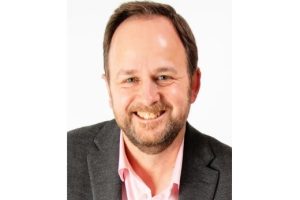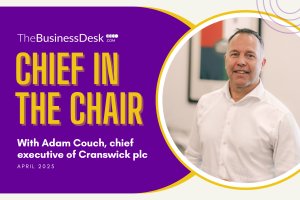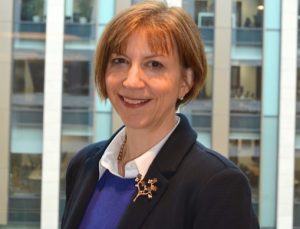RBS chief Hester outlines bank’s role in recovery

ROYAL Bank of Scotland’s group chief executive Stephen Hester has told TheBusinessDesk.com that returning the insititution to private ownership will be key to the UK’s economic recovery.
During a visit to Manchester, Yorkshire-born Mr Hester, who took over at RBS from much-criticised predecessor Sir Fred Goodwin in November 2008, conceded some staff did still feel “beleagured” by circumstances at the bank.
To meet EU rules after its £850bn bail-out from the Government, RBS is having to sell off nearly 320 branches – more than a third.
But Mr Hester said: “I think morale is generally good and people are seeing the uncertainties are being put behind us, I think think some people do still feel a little bit beleaguered, and there are still some uncertainties among staff in our branches being sold to Santander.”
He said he hoped the transfer process would be completed in 2012.
Asked about his role, and the future of banking and regulation, he revealed that he had just two hours to decide whether to take the job.
Mr Hester said he had been “surprised” by how politicised the role had become, but said he sees his role in helping RBS – which is more than 80% state owned – back on its feet and in private ownership once more, as key to the UK’s economic recovery.
He gave a broad welcome to the findings this week of the Independent Banking Commission – but pointed out that ring-fencing banks’ retail arms from their investment functions, is not the only device to prevent bank failure.
The proof of this, he said, was that Northern Rock and Bradford and Bingley had not had investment banking units, yet had still needed rescuing.
Mr Hester ruled out ditching the RBS brand name, saying customers were able to draw a distinction from what they heard or read in the media and their day-to-day experience.
“I don’t think the damage to our brand has really damaged our business with our customers – customers take us as they find us and that is why our business has stayed strong. It is why our primary focus is to continue to improve how people find us.”
On the issue of pricing of loans to business he said the average interest rate for a small business was just 3.5% – the lowest in 20 years, which he acknowledged was higher than the base rate.
“It’s a fact of life that the costs of raw materials has gone up, whether you are a supermarket or if you’re selling petrol. Banks’ raw material is money and the price has risen. What we have to do is make sure we are competitive and efficient – sometimes that’s bad news for jobs.”







